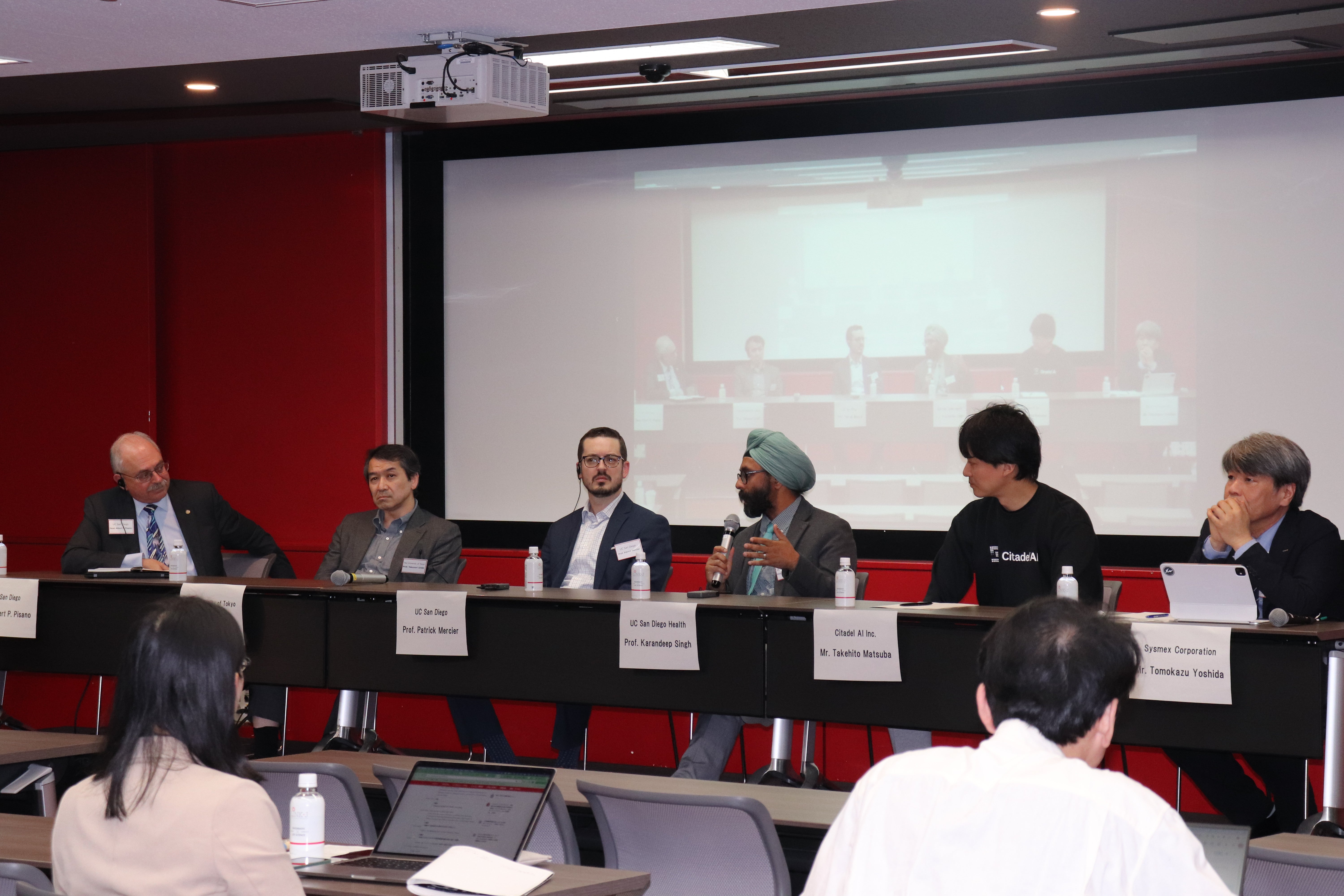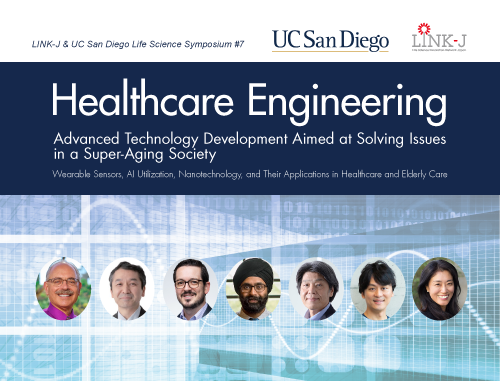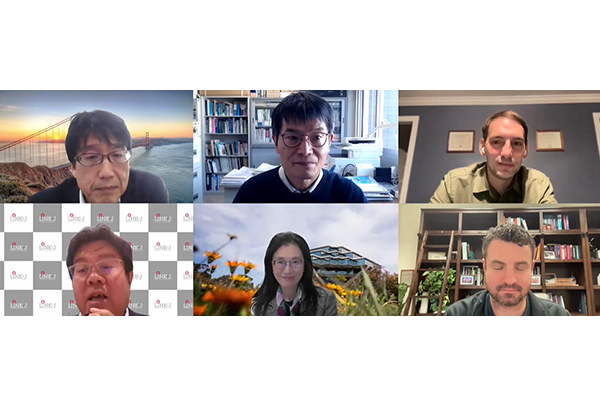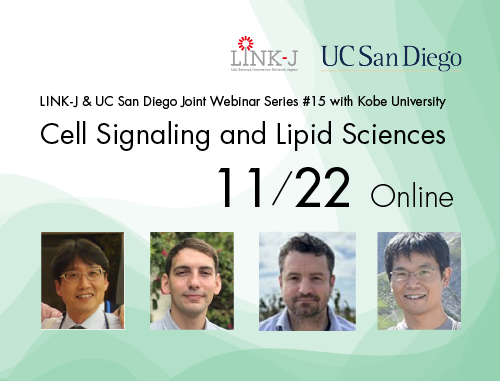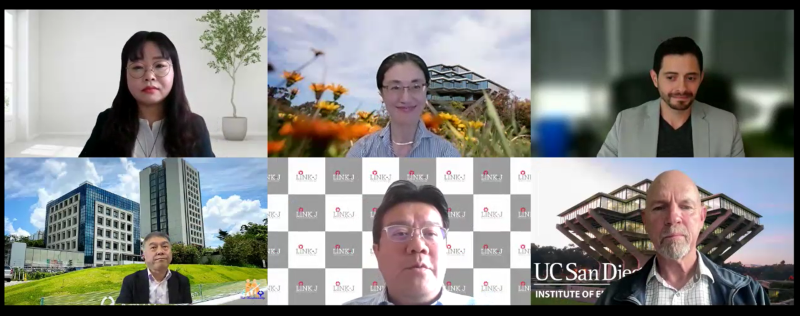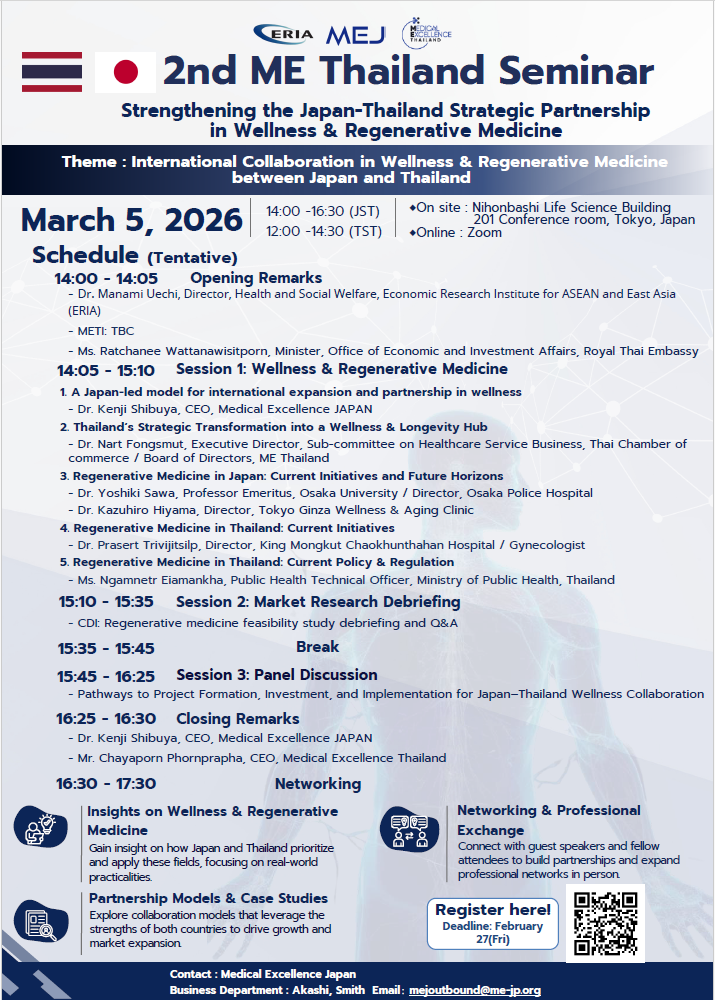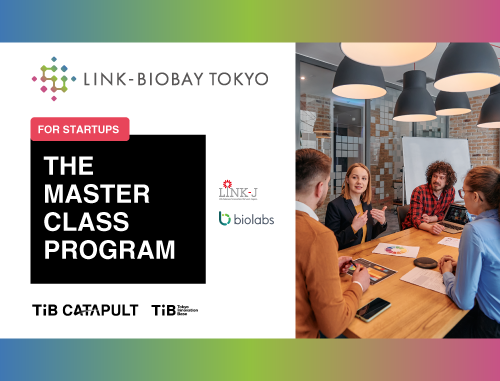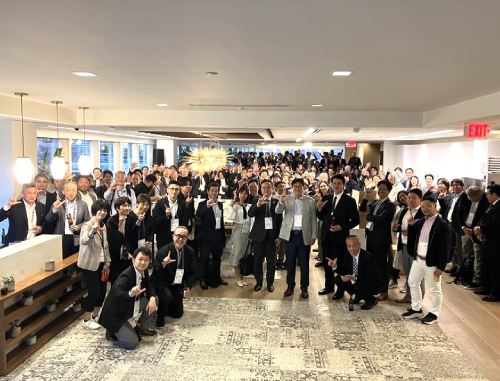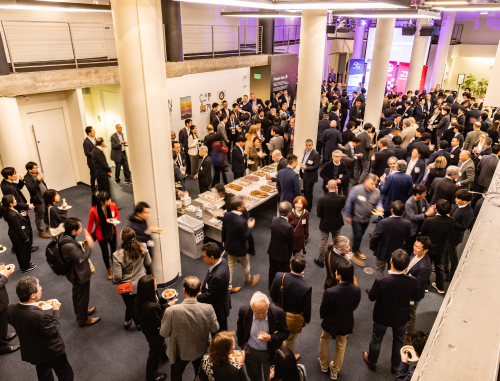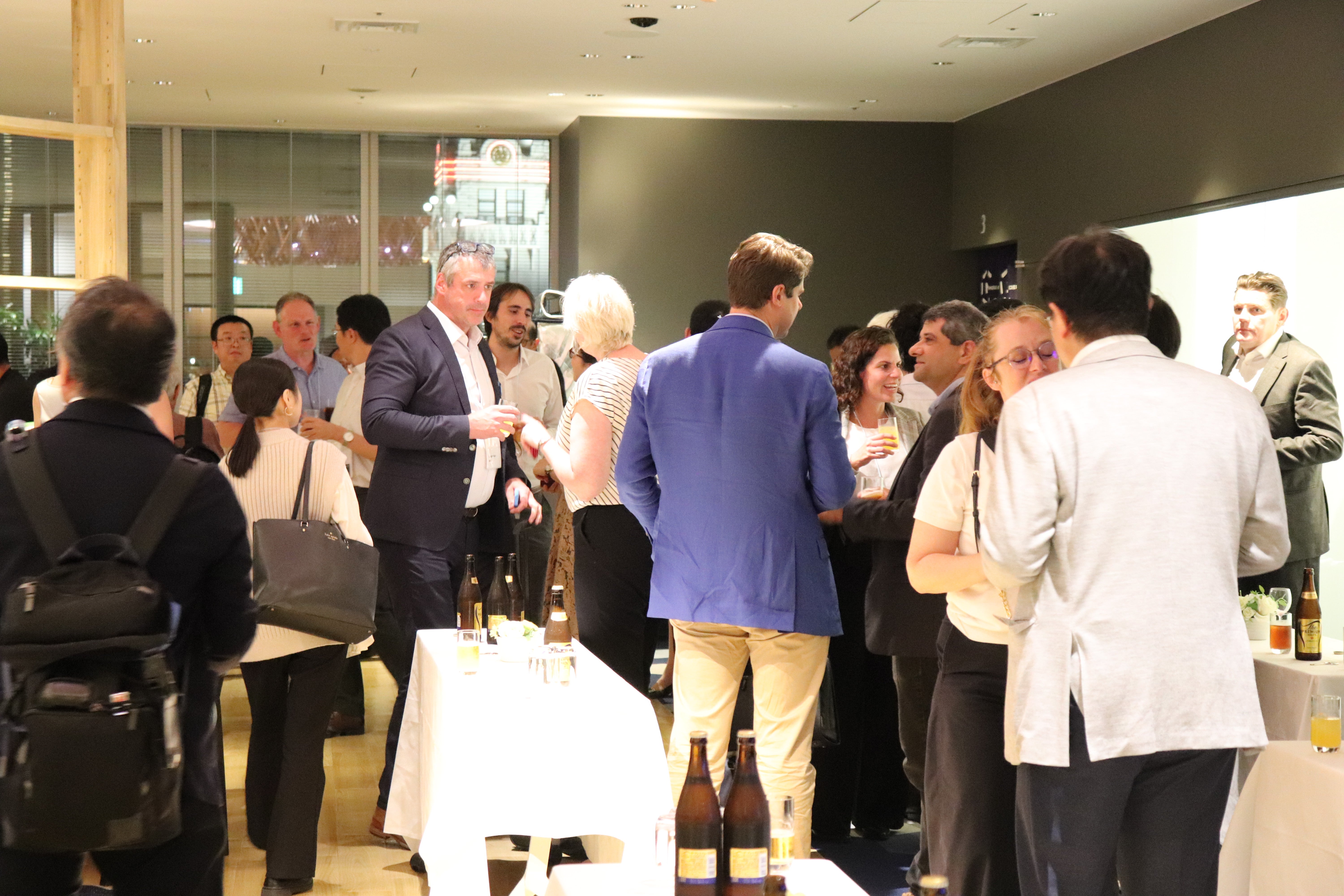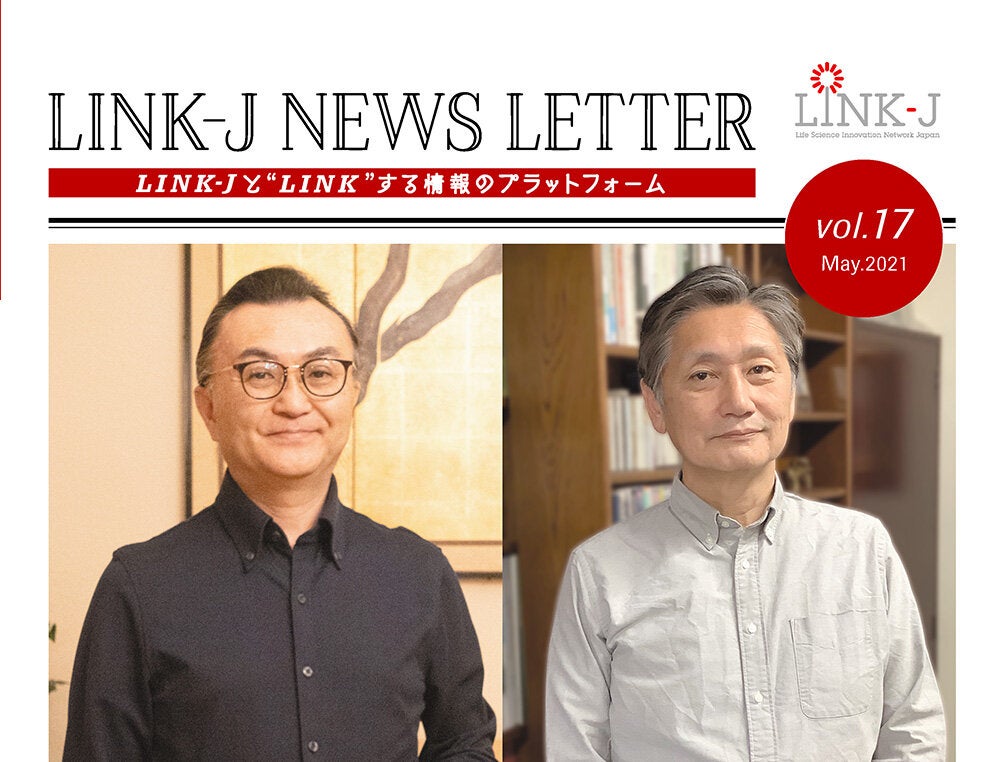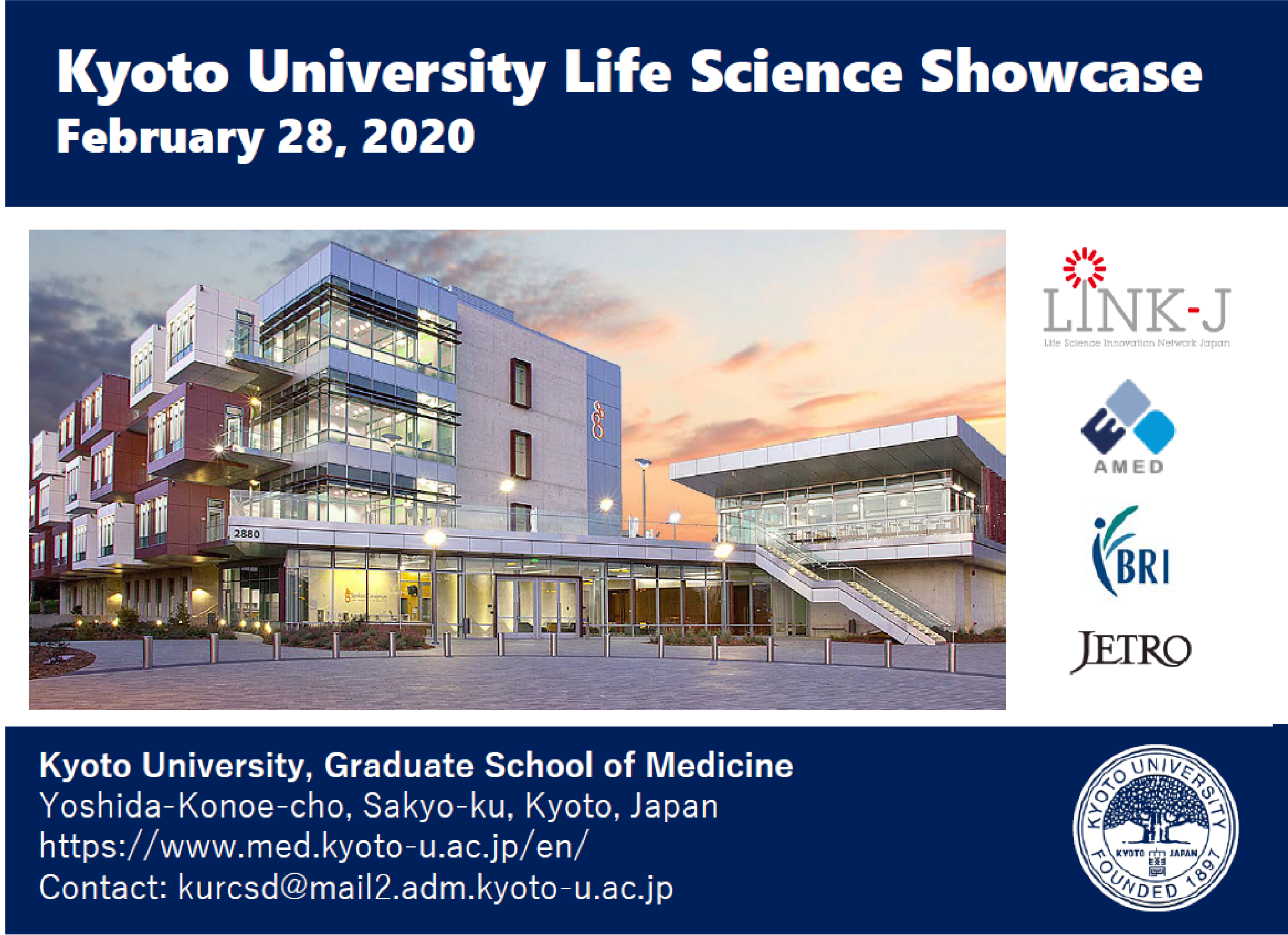[After the postponement, a new date has been set]
Due to the speaker's schedule, this event was postponed from 1st Dec and rescheduled to 18th Dec.
If you have registered for 1st Dec event, please re-register for the event on 12/18 again.
We are waiting for your participation.
In the past, UC San Diego and LINK-J have co-sponsored a series of seminars inviting top UCSD researchers to Japan.
This year, instead, we will be holding a series of joint webinars with top researchers from both UCSD and Japanese universities.
The first in a series of joint webinars, we have invited Professor Nicole Steinmetz from UCSD and Professor Yasuhiko Tabata from Kyoto University to discuss the latest trends in nanoengineering and drug delivery technologies.
*Language:English
![[New date has been set] LINK-J & UC San Diego Joint Webinar Series #1 with Kyoto University "Front-Line Nano-Engineering and Drug Delivery Technologies"](https://link-j.g.kuroco-img.app/v=1730798061/files/topics/40650_ext_13_en_0.png)
Date: Fri, Dec 18, 2020 8:30am-10:00am (JST)
Online (Zoom Webinar)
(Opens an external site)
Registration Fee
Free
How to participate
●Registration through peatix
This event will be broadcasted on Zoom webinar. Please make a registration through https://ucsd-joint1218.peatix.com?utm_source=HP in advance.
●Registration through E-mail
Send E-mail to event1@link-j.org
Title: 1218 UCSD webinar Registration
Contents: Name, Gender, E-mail address, Telephone number, Age, Company name, Department/Title, Job Description, Agree to LINK-J privacy policy? (http://www.link-j.org/en/privacy/)((http://www.link-j.org/en/use/)
After we receive your E-mail, we will reply you.
Program
8:30-8:35 Opening Remarks – A. Soyama, LINK-J
8:35-8:40 Remarks and Speaker Introduction – M. Waga, UC San Diego
8:40-9:00 Prof. Nicole F. Steinmetz, UC San Diego
9:00-9:05 Q&A on Prof. Steinmetz’s presentation - moderated by LINK-J & UCSD
9:05-9:25 Prof. Yasuhiko Tabata, Kyoto University
9:25-9:30 Q&A on Prof. Tabata’s presentation and transition – moderated by LINK-J & UCSD
9:30-9:50 Q&A and Discussion on future work and challenges to translation - moderated by LINK-J & UCSD
9:50-9:55 Closing Remarks & Announcement about Upcoming Webinars – A. Soyama
Lectures
Lecture1 Nicole F. Steinmetz Ph.D.
"NanoEngineering Gone Viral: Plant Virus-Based Immunotherapy and Vaccines"
Nanoscale engineering is revolutionizing the way we detect, prevent and treat diseases. Viruses are playing a special role in these developments because they can function as prefabricated nanoparticles. We utilize and build-upon the high-precision assemblies of the viral capsids and utilize them as platform technologies, engineered and repurposed for a desired function. More specifically, we turned toward the engineering of plant viruses as a platform nanotechnology. Plant viruses are non-infectious toward mammals. A particular advantage of plant virus-based technologies is their manufacturing and engineerability; genetic programming enables in-planta production of pre-functionalized nanoparticles with a high degree of quality control and assurance. Plant virus-based technologies could be produced ‘in the region for the region’ in developing countries lacking a conventional refrigeration system and health infrastructure, toward low-cost and edible therapeutics. Opportunity exists to incorporate these materials into devices to produce designer therapeutics that do not require a cold chain for storage or distribution. We have developed a library of plant virus-based nanoparticles and through structure-function studies we are beginning to understand how to tailor these materials appropriately for applications targeting human, veterinary and plant health. Through chemical biology, we have developed virus-based delivery systems carrying medically-relevant cargo enabling tissue-specific imaging and treatment. A particular exciting avenue is the development of plant virus-like particle platforms for cancer immunotherapy. The idea pursued is an ‘in situ vaccination’ to stimulate local and systemic anti-tumor immune responses to treat established disease, and most importantly to induce immune memory to protect patients from outgrowth of metastasis and recurrence of the disease. Another avenue is the repurposing of plant viruses to enable plant health; we employ principles of nanomedicine to target pesticides residing deep in the soil therefore challenging to reach using contemporary pesticides. I will highlight engineering design principles employed to synthesize the next-generation nanotherapeutics using plant virus-based platform technologies, and I will discuss the evaluation of such in preclinical mouse models and canine patients as well as in the agricultural arena.
Lecture2 Yasuhiko Tabata Ph.D.
"Drug Delivery Technologies for Future Advanced Medical Treatment"
As a future advanced medical treatment, regenerative medicine based on the natural-healing potential of body itself has been recently expected. To this end, it is indispensable to promote the proliferation and differentiation abilities of cells for tissue regeneration which plays a key role in the healing potential. Recent advent of biomaterial technology or methodology enables to give cells a local environment to naturally induce their ability enhancement. When a cell scaffold or a key molecule is efficiently supplied to cells, the body system initiates to physiologically function, resulting in the natural induction of cell-based tissue regeneration. The efficient supply of key molecule is achieved by making use of drug delivery system (DDS) technology. This DDS technology can also improve the in vivo viability and functions of cells, promoting the therapeutic efficacy of cell transplantation.
Biodegradable hydrogels are available for the controlled release of growth factors, chemokines, genes, and low-molecular-weight drugs to succeed in cells activation for regeneration therapy of various tissues. The hydrogel system can not only release one type of drug, but also two types of drugs in different concentrations or time profiles. For example, the controlled release of one drug can enhance the in vivo recruitment of key cells, followed by the local functional activation of cells recruited by another drug released for an enhanced cell-based tissue regeneration. Inflammation is one of the essential host responses to pathologically modify the process of tissue regeneration. Tissue regeneration was naturally promoted by positively regulating the inflammation process through the local release of an anti-inflammatory drug. An appropriate regulation of inflammation further enhanced the therapeutic efficacy of tissue regeneration which is induced by the biomaterial technology.
This paper emphasizes the functional activation of cells originally present in the body by utilizing the DDS technology is one of the promising strategies of future advanced medical treatments.
Biography
 Nicole F. Steinmetz Ph.D. | Professor, Department of NanoEngineering and Center for Nano-ImmunoEngineering (nanoIE), Jacobs School of Engineering, UC San Diego
Nicole F. Steinmetz Ph.D. | Professor, Department of NanoEngineering and Center for Nano-ImmunoEngineering (nanoIE), Jacobs School of Engineering, UC San Diego
Dr. Steinmetz is a Professor of NanoEngineering at the University of California, San Diego (07/2018-present). She is the founding Director of the Center for Nano-ImmunoEngineering (nanoIE) and serves on the Leadership Team for a UC San Diego Materials Research Science and Engineering Center (MRSEC). She started her independent career at Case Western Reserve University School of Medicine in the Department of Biomedical Engineering (in 2010), where she was promoted through the ranks of Assistant, Associate, and Full Professor. Dr. Steinmetz trained at The Scripps Research Institute, La Jolla, CA where she was a NIH K99/R00 awardee and AHA post-doctoral fellow (2007-2010); she obtained her PhD in Bionanotechnology from the University of East Anglia where she prepared her dissertation as a Marie Curie Early Stage Training Fellow at the John Innes Centre, Norwich, UK (2004-2007). Her early training was at the RWTH-Aachen University in Germany. Dr. Steinmetz’s research program focuses on the engineering of plant virus-based nanomaterials targeting human and plant health applications, such as therapeutic delivery, molecular imaging, and next-generation vaccines and immunotherapies. Dr. Steinmetz has authored more than 190 journal articles (H index 50). Dr. Steinmetz is a standing member of the NIH Nanotechnology study section. She serves on the Editorial Board of Wiley Interdisciplinary Reviews (WIREs) on Nanomedicine and Nanobiotechnology; she serves on the Advisory Editorial Board for the ACS Nano, Molecular Pharmaceutics, Journal of Materials Chemistry B, and Materials Advances. Dr. Steinmetz is a Fellow of the Royal Society of Chemistry (FRSC, since 2018), a Fellow the American Institute of Medical and Biological Engineering (AIMBE, since 2017); she has won many awards, including an American Cancer Society (ACS) Research Scholar Award (2016), and a Young Innovator of Cellular and Molecular Bioengineering Award from the Biomedical Engineering Society (2015). Dr. Steinmetz’s research program is supported through grants from NIH, NSF, NIFA, CDMRP as well as ACS, Susan G. Komen, AHA, amongst other agencies. Over the past 10 years, Dr. Steinmetz has been awarded grants as PI and Co-PI totaling $41+ million in total costs.
 Yasuhiko Tabata Ph.D. | Professor, Laboratory of Biomaterials, Department of Regeneration Science and Engineering, Institute for Frontier Life and Medical Sciences, Kyoto University
Yasuhiko Tabata Ph.D. | Professor, Laboratory of Biomaterials, Department of Regeneration Science and Engineering, Institute for Frontier Life and Medical Sciences, Kyoto University
Dr. Yasuhiko Tabata is the Professor and Chairman of the Laboratory of Biomaterials at the Institute for Frontier Life and Medical Sciences, Kyoto University and a Professor of the Graduate School of Medicine, Osaka University, and guest professors at the Graduate School of Medicine, Dentistry, Pharmaceutical Sciences, and Engineering of 17 different universities. He received his BD in Polymer Chemistry (1981), Ph.D. (1988) in Technology, D.Med.Sc. (2002), and D.Pharm. (2003) all at Kyoto University. He was a Visiting Scientist at the MIT (Professor Robert Langer) (1991-92). He has published 1,710 scientific papers including 146 book chapters and review articles, and has 130 patents. He received the Young Investigator Award (1990), the Scientific Award from the Japanese Society for Biomaterials (2002), the Scientific Award from the Japan Society of Drug Delivery System (2011), Chandra P. Sharma Award of the International Society of Biomaterials & Artificial Organs (2011), the Scientific Award from the Japanese Society for Regenerative Medicine (2014), Merit Award Winners for Industry-Academia-Government Collaboration, President of Science Council of Japan Award (2016), Outstanding Scientist Award of the Tissue Engineering and Regenerative Medicine International Society - Asian-Pacific Chapter (TERMIS-AP) (2018), and several awards.
Dr. Tabata is the board member of the Japanese Society of Regenerative Medicine (JSRM), the Japanese Society for Biomaterials (JSB), the Japan Society of Drug Delivery System (JSDDS), and the Japanese Society of Inflammation and Regeneration (JSIR) or the councilor of the Japanese Society of Wound Healing, the Japanese Artificial Organ Society, He is an associate member of the Science Council of Japan, Cabinet Office, a fellow of the World Biomaterials Society (WBS), the TERMIS, the Controlled Release Society (CRS) or the New York Academy of Science and American Institute for Medical and Biological Engineering (AIMBE), and the Founding Fellow for Tissue Engineering and Regenerative Medicine, (FTERM).
Dr Tabata is the one of founder members of Asian Biomaterial Federation (ABF). He is a board member of Tissue Engineering Society International for 2001-2003 and 2012-present. He organized as the chairman the 13th Annual Congress of JSRM (2014) and the 37th Annual Congress of JSB (2015), the 37th Annual Congress of JSIR (2016), and the 33th Annual Congress of JSDD (2017). He is a board member of TERMIS-AP for 2013-present and the president of TERMIS-AP for 2016-2020, and chairs the 5th TERMIS World Congress 2018, Kyoto, Japan.
His research is very interdisciplinary in nature and brings together the fields of polymer chemistry, pharmaceutical science, biology, and basic and clinical medicines. He actively proceeds translational researches by linking bioengineering scientists, clinicians, and industry to achieve clinical therapies of regenerative medicine as well as produce some commercialization products for basic researches and cosmetics. His research focuses on the design and preparation of biodegradable or non-biodegradable biomaterials for their biological, medical, and pharmaceutical applications, while the keywords are biomaterials, drug delivery system (DDS), tissue engineering, regenerative medicine, stem cell technology, and medical diagnostics.
Upcoming joint webinar series
vol.2...
Participation Fee
Free (Registration required)
Organizer
Host:LINK-J, Co-Host:UC San Diego
Contact
Email:contact@link-j.org
